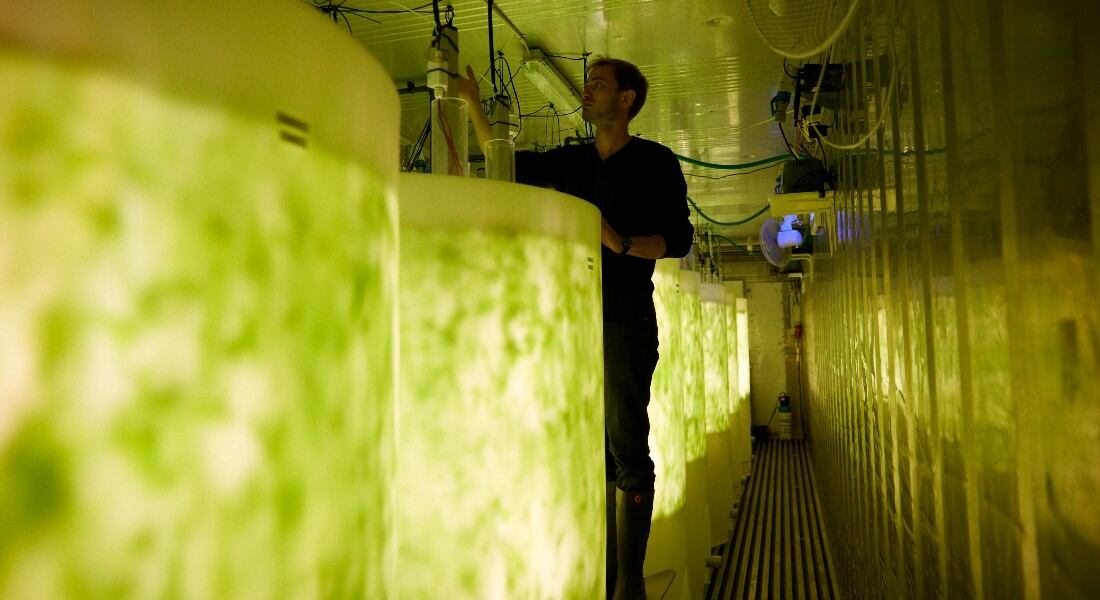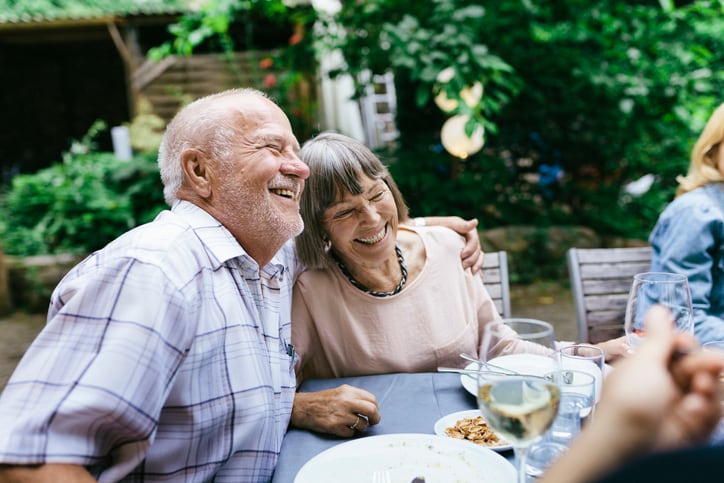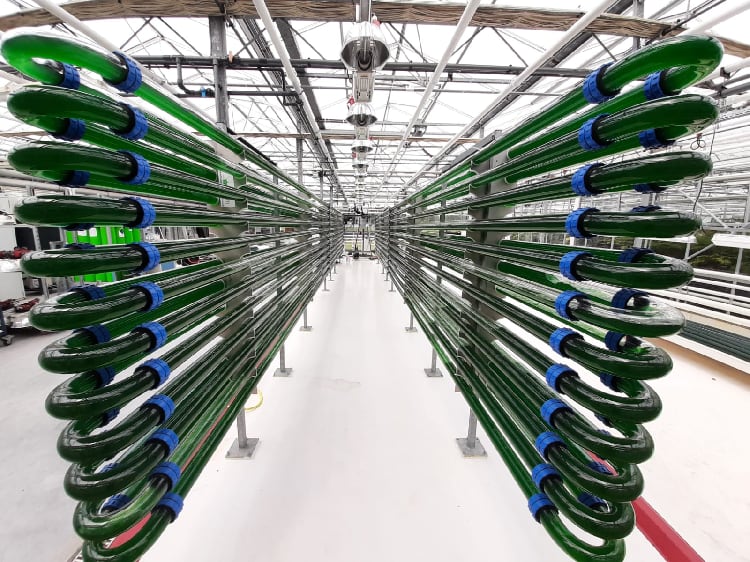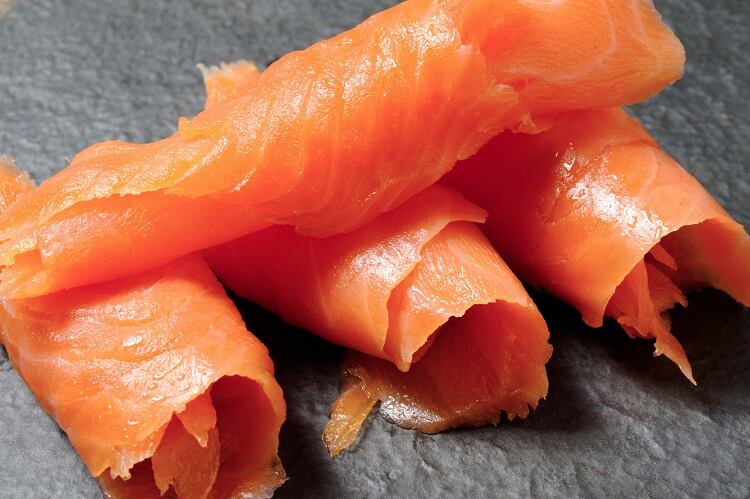Over the next four years, the SeaFree project will develop a closed, sustainable cycle on land that utilizes residual nutrients and CO2 from shrimp and fish farming – which otherwise pollute the sea and contribute to global warming – to grow high-value seaweed for the food and healthcare industries.
“The project aims to use seaweed production to absorb and convert emissions from land-based aquaculture into a high-value product,” said Professor Marianne Thomsen from the Department of Food Science at the University of Copenhagen. “Among other things, the seaweed will be used for dietary supplements that can prevent diabetes and sustainable foodstuffs innovations. In addition to capturing emissions that would have otherwise been emitted into the atmosphere and aquatic environment, the seaweed produced is both healthy and rich in umami flavour.”
A single 40-foot container makes seaweed in a week
The project, funded by Innovation Fund Denmark with DKK 14.4 million (€1.9m), is being carried out in a collaboration among the companies Pure Algae, DryingMate, Food Diagnostics, Sigrid Therapeutics, XOventure GmbH/Rigi Care, KOST, SOF Odden Caviar and HanseGarnelen.
The project’s starting point is a 40ft container setup equipped with eight one-thousand-litre tanks. The container solution is a Plug’n’Play solution which could potentially be exported to other countries, according to the researchers.
By combining salt water, CO2 and nutrients with LED lights, the unit can produce a full batch of seaweed in just one week, resulting in an extremely short harvest period.
"SeaFree represents the latest in recycling technology for land-based shrimp and fish farming. Besides capturing emissions, the system also recirculates surplus heat from the plants to the Plug'n'Play technology,” explained Thomsen. “The project includes the development of a new technology that makes it possible to use surplus heat to dry the seaweed which is then sold to the healthcare industry. In this way, SeaFree contributes to a more sustainable and efficient production process.”
A potential export venture
The final product consists of climate-friendly fish, shrimp and sea lettuce – a healthy, fibre and protein-rich seaweed species. In addition to the production of various dietary supplements, sea lettuce is also used as an edible accompaniment when people buy seafood.
"Part of the project is also about developing recipes that increase awareness of seaweed as an ingredient for delicious home-cooked meals," said Thomsen.
There is huge potential in farming fish and seaweed in the manner envisioned by SeaFree, she added, claiming that if all of the world's land-based shrimp and fish farms implemented the method, it could significantly reduce the CO2 footprint of global food systems.
As such, the combination of aquaculture and seaweed cultivation in closed systems may well develop into a new Danish export market.
On a global level, it will be possible to implement the technology, marketed as "SeaFree Synergy Solutions", anywhere in the world. As for the technology’s environmental benefits, they are unequivocal. "We are already in contact with South Korea, which is very interested in the technology and the project’s development," she revealed.
The push to make algae an 'everyday commodity for future generations'
The SeaFeed project comes as efforts continue to exploit algae’s health and sustainability benefits. The ‘Seafood Alg-ternative’ project, with has received support from the European Maritime and Fisheries Fund, is working to transform algae into plant-based seafood substitutes. Another initiative called North Sea Farm 1, will be located in a wind farm off the coast of the Netherlands. It has received €1.5 million in funding from Amazon.com and will also research the potential of using seaweed for carbon capture.
A €12 million EU-funded initiative was also announced in May 2023 to develop innovative algae products and will focus on opportunities for Baltic and North Sea region.
The AlgaeProBANOS project, funded by the European Union’s Horizon Europe programme and part of the SUBMARINER Network, will over four years look to leverage the unique properties of algae to create new, high-value products and services for a variety of applications.
According to the project, algae are an incredibly versatile and sustainable resource which can be cultivated without using freshwater, arable land, or added fertilisers and pesticides.
Through this project, the 26 partners and affiliates will build acceleration networks and digital solutions to support algae businesses, while running six business pilots across the Baltic and North Sea region, making use of both micro- and macroalgae for applications in food, feed, nutraceuticals, textiles, cosmetics and plant biostimulants. The project will bring eight innovative algae-based products to market, helping to meet the growing demand for ecologically friendly, high quality circular bio-based goods.
Speaking at the project launch event in Berlin, Angela Schultz-Zehden, Managing Director of the SUBMARINER Network, said: "We are super excited to be embarking on this new Baltic and North Sea lighthouse project which is among the largest EU-funded algae projects. Only a decade ago, the cultivation and use of algae in Europe was very much at the research stage. Today, many large-scale industry players are highly interested in algae as a new bio-resource to improve the environmental footprint of their products. AlgaeProBANOS will make a big contribution to mainstreaming the use of algae in very different industries throughout Europe, making it an everyday commodity for future generations.”





